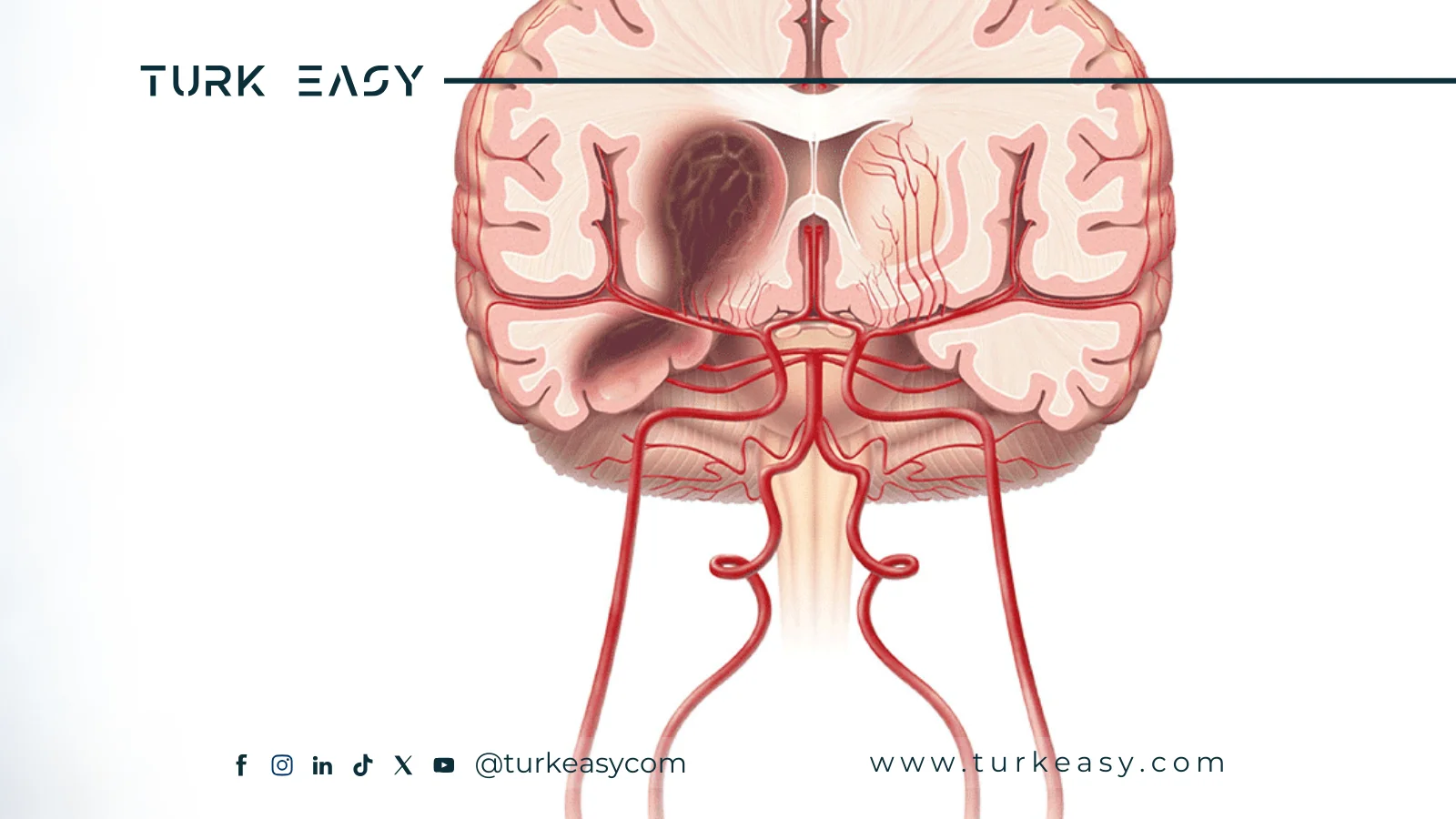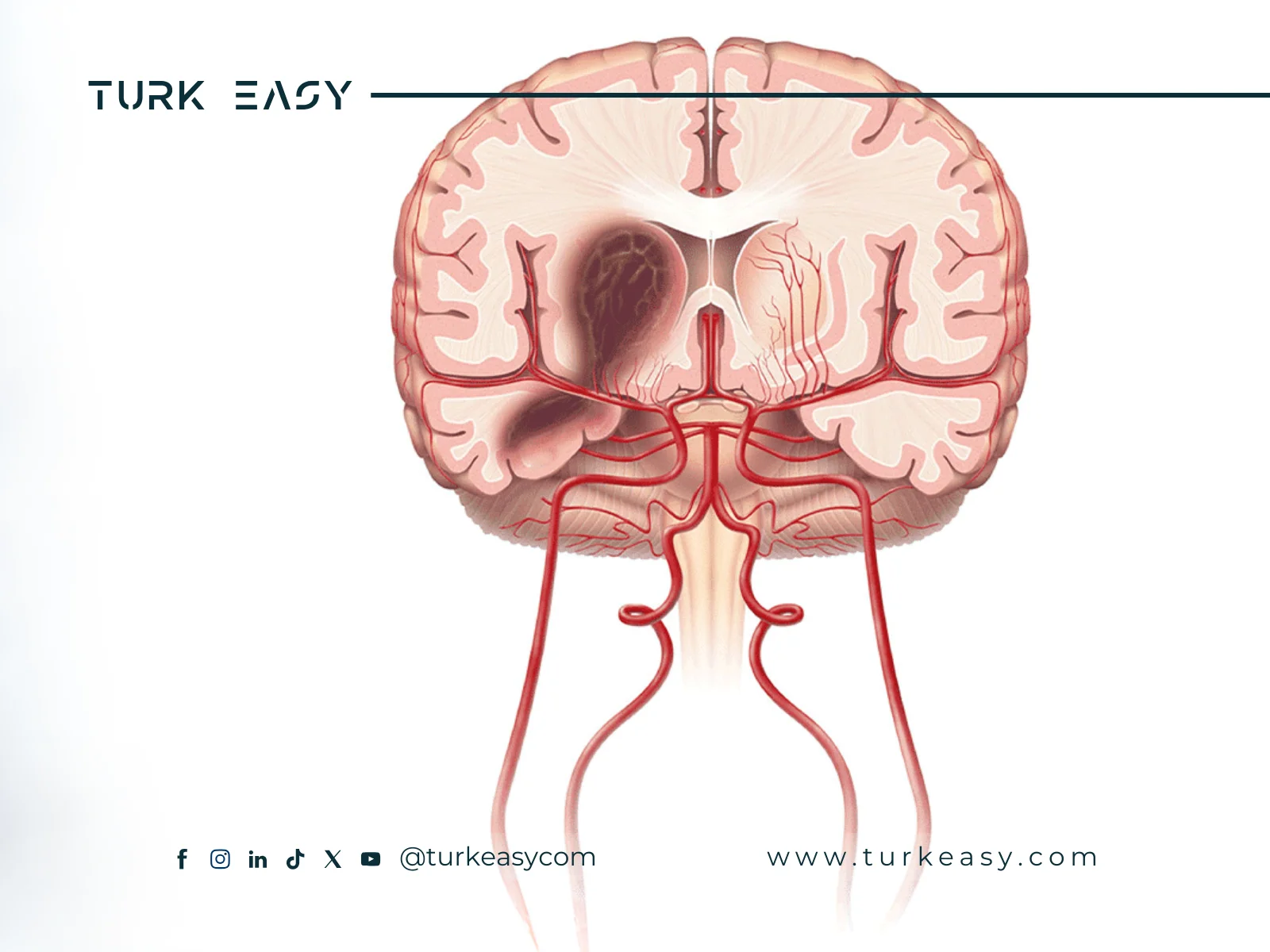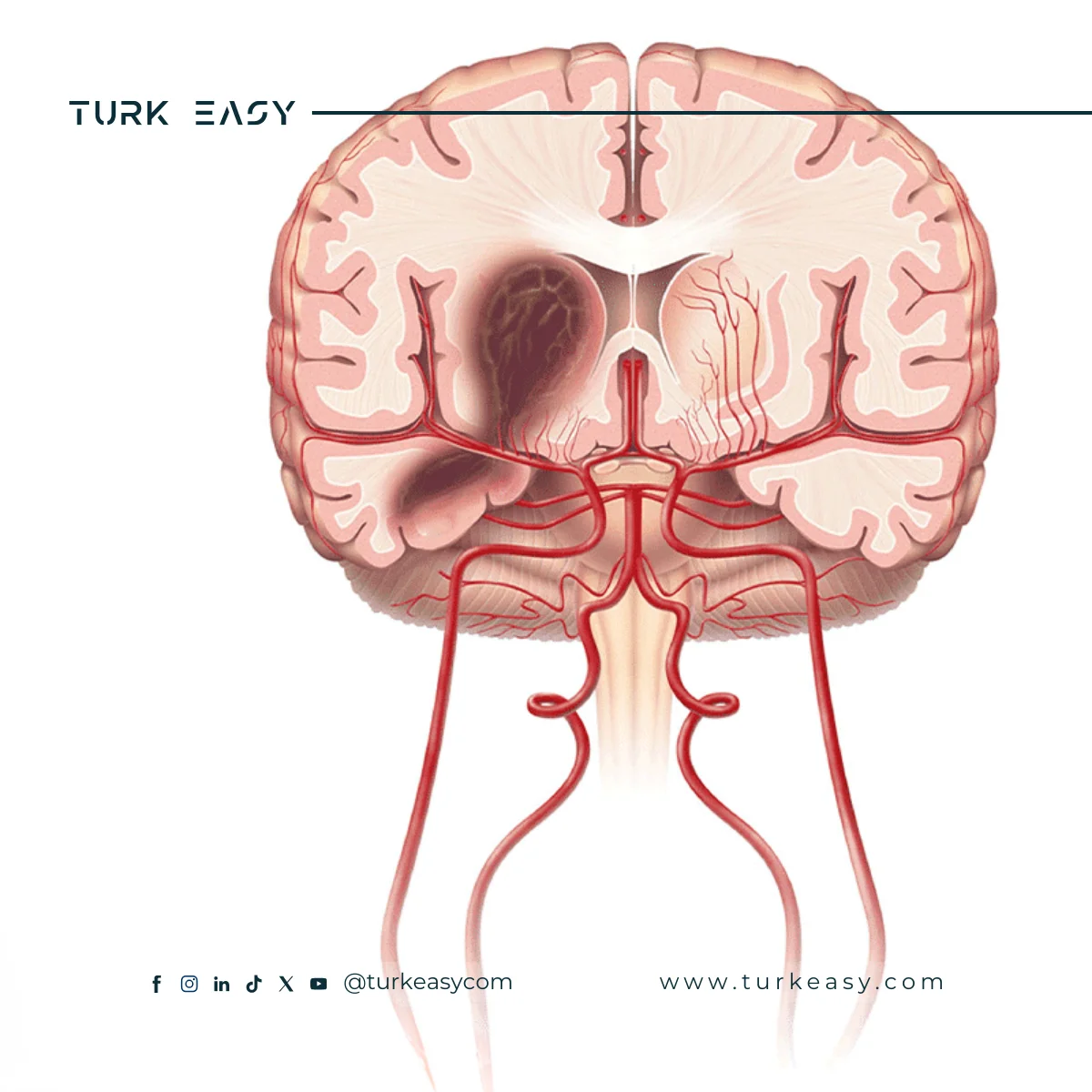Cerebral Hemorrhage
A cerebral hemorrhage is defined as blood collections within the cranial cavity. It occurs due to the rupture of blood vessels inside the skull as a result of head trauma, which is the common cause. This sometimes leads to pressure on brain tissues. Head trauma can result in mild concussion that resolves on its own or through some therapeutic medications. In other cases, blood collections may be extensive, necessitating surgical intervention for the cerebral hemorrhage.
What Are the Common Symptoms of Cerebral Hemorrhage?
- Nausea and vomiting.
- Dizziness and lack of concentration.
- Loss of balance.
- Severe headache.
- Difficulty speaking.
- Blurred vision.
- Lethargy or loss of consciousness.
What Are the Treatment Methods for Cerebral Hemorrhage?
For the treatment of cerebral hemorrhages beneath the skull, beneath the dura mater, or within brain tissues, it is necessary to assess the size and progression of the blood accumulation. In some cases, patients may be healed through medical medications, while in other cases, surgical intervention for cerebral hemorrhage may be required.
Cerebral Hemorrhage Surgery:
In the case of large blood accumulations: the physician opens a part of the skull bone and uses a channel or catheter to drain the accumulated blood.
In the case of limited blood accumulations: only a small hole above the skull is required to drain the small blood accumulations.
In some cases, it may be necessary to leave the drain in place for more than a day to ensure complete drainage of the blood accumulations. Sometimes bleeding may recur hours or days after cerebral hemorrhage surgery.
Recovery Phase:
Complete recovery from cerebral hemorrhage requires a long time in moderate and severe cases, up to three to five months. There are some guidelines to follow during the recovery period:
- Complete rest, for at least eight hours a day.
- Consultation with a specialist in physical therapy to alleviate the negative effects associated with head movement and speech if necessary.
- Regular intake of medications prescribed by the physician throughout the recovery period, with a return to the physician if there are any adverse effects from these medications, followed by reassessment and use of alternatives.
- Complete avoidance of smoking in all its forms, as well as alcoholic beverages that may cause blood pressure disturbances.
- Avoidance of engaging in various sports activities, especially those requiring violent physical contact, to prevent further injuries that may complicate the situation.
- Gradual return to professional or physical activity after complete recovery. It is important to deal normally and engage socially to regain psychological balance.



